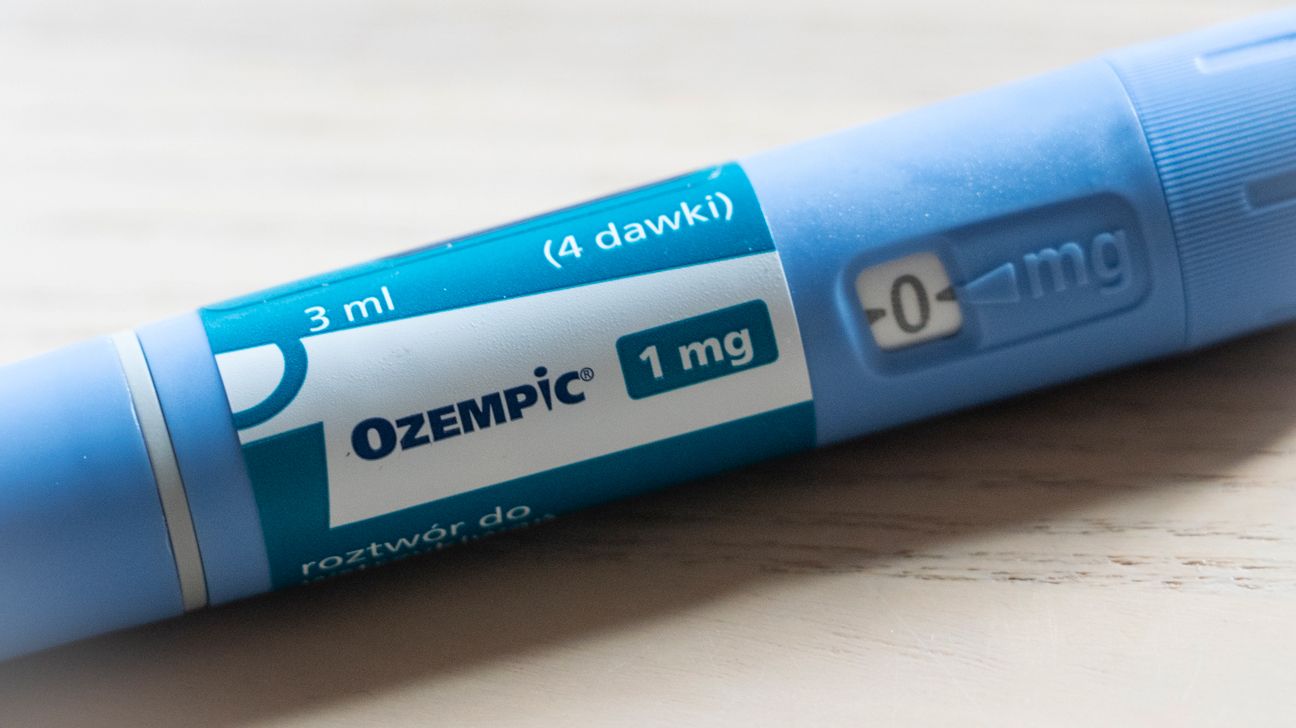
- There has been a concern that GLP-1 drugs might increase thyroid cancer risk.
- However, a new study indicates that any increase in risk is probably quite low.
- This is likely because these drugs have a high specificity for the GLP-1 receptor.
- People can reduce their risk by focusing on lifestyle factors like smoking and diet.
- It is also important to get regular screenings and avoid unnecessary radiation exposure.
Glucagon-like peptide 1 (GLP-1) agonist drugs — which include medications like Ozempic (semaglutide), Victoza (liraglutide), and Trulicity (dulaglutide) — have been life changing for many people.
When used regularly, they can help those with type 2 diabetes produce more insulin and achieve better blood sugar control.
They can also help people lose weight, especially when coupled with lifestyle changes like healthy diet and exercise.
One downside, however, is that they have not been recommended for use in those with a personal or family history of either medullary thyroid cancer or multiple endocrine neoplasia.
Previous studies, starting with rodent studies conducted in the premarketing phase, have raised concerns about whether GLP-1 receptor agonists could increase a person’s risk for cancer.
In response, these medications have been required to carry a black box warning regarding the potential risk.
However, a
According to this study, treatment with GLP-1 receptor agonists was not linked with any substantial increase in risk for thyroid cancer in people who were followed up on average for 3.9 years.
The study authors did acknowledge that a small increase in risk could not be ruled out, but it would be no greater than a 31% increase in relative risk.
In other words, no more than 0.36 excess cancers per 10,000 person-years would occur compared to the background incidence of 1.46 per 10,000 person-years in those who had used a different type of diabetes medication.
The study was performed using healthcare and administrative data from Denmark, Norway, and Sweden.
Study participants, who were between the ages of 18-84, were selected based on their use of either a GLP-1 receptor agonist or a dipeptidyl peptidase 4 (DPP4) inhibitor, another type of diabetes medication.
Those taking dipeptidyl peptidase 4 inhibitors were selected as the comparator group since these drugs are not believed to increase thyroid cancer risk.
The researchers also carried out a similar analysis using another class of diabetes medications called “sodium-glucose cotransporter 2 (SGLT2) inhibitors.”
Their analysis started when people initially began using a GLP-1 medication and continued until people were diagnosed with cancer, left the study, or the study follow-up period ended.
On average, the GLP-1 group was followed for 3.9 years, and the DPP4 group was followed for 5.4 years.
It was found that 76 out of 145,410 developed thyroid cancer in the GLP-1 group, an incidence rate of 1.33 events per 10,000 person-years.
On the other hand, 184 out of 291,667 people in the DPP4 group went on to be diagnosed with thyroid cancer, which corresponds to an incidence rate of 1.46 events per 10,000 person-years.
Dr. Kristopher M. Day, founder of Pacific Sound Plastic Surgery, who was not involved in the study, said, “The recent findings that GLP-1 drugs, such as Ozempic, do not increase the risk of thyroid cancer, differ from previous studies primarily because of advancements in research technology, including more precise analytic tools, and a better understanding of the drug’s pharmacodynamics.”
According to Day, these developments allow for a more nuanced examination of the drug’s effects on the body.
This can lead to clearer, more accurate results, he noted.
“A significant aspect could also be the longitudinal follow-up in recent studies, offering insights into the long-term impacts of these drugs, which wasn’t as prevalent or detailed in earlier research,” added Day.
Day said the reason that GLP-1 drugs like Ozempic and Wegovy might not lead to an increased risk of thyroid cancer really comes down to their specific mechanism of action.
They target the glucagon-like peptide-1 receptor, he said, which plays a crucial role in glucose metabolism but has minimal interaction with thyroid function.
“This specificity reduces the likelihood of unintended effects on thyroid cells, which could potentially initiate cancerous changes,” said Day.
“Additionally, these drugs’ therapeutic window may contribute to their safety profile, ensuring effectiveness without reaching levels that could harm other bodily systems,” he added.
“From a practitioner’s standpoint, advising patients on reducing their risk of thyroid cancer requires a focus on lifestyle factors that are within their control,” said Dr. Mark Anton, founder of OC Breast Surgery, who was not involved in the study.
“Encouraging a diet that supports thyroid health, advising on the avoidance of unnecessary radiation exposure, and recommending regular screenings, especially for those with a family history of thyroid issues, are critical steps,” he advised.
Anton also stressed the importance of understanding and communicating the last research findings related to the safety of GLP-1 drugs.
This can help lessen people’s concerns and foster a proactive, informed approach to health and wellness, he said.
It was originally feared, based on preliminary research, that GLP-1 drugs might increase the risk for thyroid cancer.
However, a new study indicates that any increase in risk is probably quite low.
The reason is that GLP-1 drugs mainly affect the GLP-1 receptor and don’t tend to impact thyroid function.
To reduce your risk of developing thyroid cancer, it’s important to eat a thyroid-healthy diet, including adequate iodine.
Avoiding unnecessary radiation exposure and getting regular screenings, especially if there is a family history of thyroid issues, can also help.
